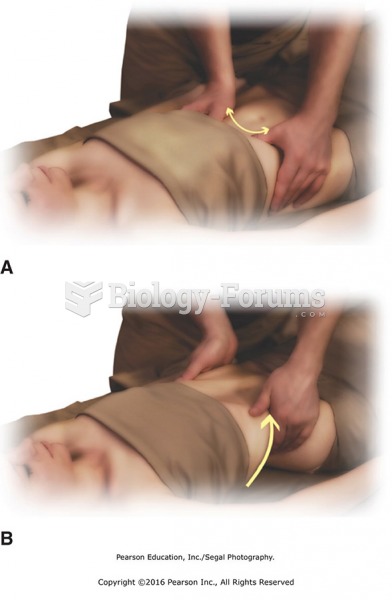|
|
|
Cytomegalovirus affects nearly the same amount of newborns every year as Down syndrome.
IgA antibodies protect body surfaces exposed to outside foreign substances. IgG antibodies are found in all body fluids. IgM antibodies are the first type of antibody made in response to an infection. IgE antibody levels are often high in people with allergies. IgD antibodies are found in tissues lining the abdomen and chest.
By definition, when a medication is administered intravenously, its bioavailability is 100%.
Essential fatty acids have been shown to be effective against ulcers, asthma, dental cavities, and skin disorders such as acne.
Aspirin may benefit 11 different cancers, including those of the colon, pancreas, lungs, prostate, breasts, and leukemia.
 Each year, the leaders of the world’s eight most powerful nations meet in a secluded place to make ...
Each year, the leaders of the world’s eight most powerful nations meet in a secluded place to make ...
 (A) Thumb slide along diaphragm, and lift around the waist. Place thumbs just under the rib cage, ...
(A) Thumb slide along diaphragm, and lift around the waist. Place thumbs just under the rib cage, ...





